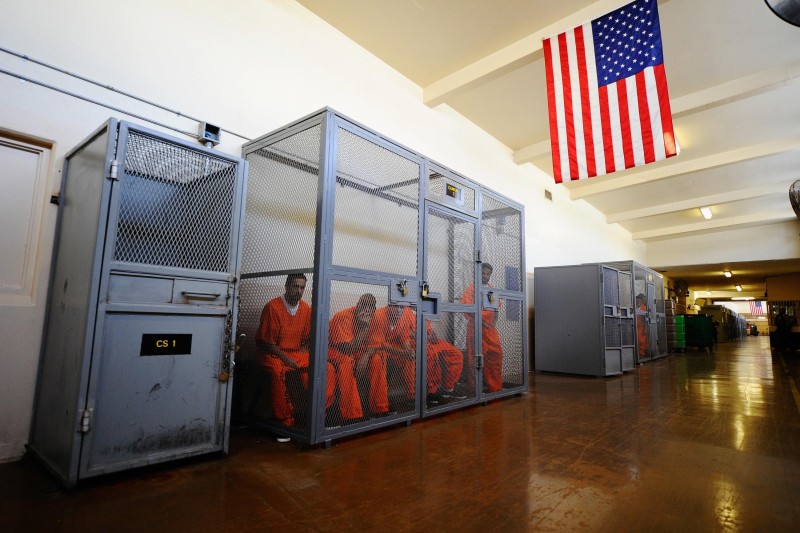This map shows state felon disenfranchisement rates and related voting restrictions. Note that for the most restrictive states, voting can only be reinstated through the governor's pardon or a court order. Arizona and Nevada offer exceptions for first-time offenders convicted of less serious crimes. And in Wyoming, rights are restored for non-violent felon upon completion of their sentences. A complete description of current rules is listed here.
The United States has among the world's most restrictive felon disenfranchisement laws.
These state prohibitions disproportionately affect African-Americans, particularly black men: one of every 13 African-Americans of voting age -- more than 7 percent nationally -- is disenfranchised, according to Sentencing Project's analysis. In some of the strictest states, more than 20 percent of the African American population is disenfranchised, the report found.
Conversely, Maine and Vermont, both overwhelmingly white, are the only two states without any felon voting restrictions; even inmates can vote.
“Fundamentally it’s a question of democracy and how we define who can participate,” said Marc Mauer, executive director of the Sentencing Project. "When people are convicted of felonies, they should receive the appropriate punishment, but we don't normally take away their fundamental rights of citizenship."
Convicted felons, he notes, even those who are still incarcerated, retain many of their individual rights, including the ability to get married and divorced and to buy and sell property. The First Amendment right to free speech is also mostly preserved for felons (an inmate can write a letter-to-the-editor, for instance), with limitations generally only having to do with to security-related concerns.
Supporters of felon disenfranchisement laws defend their constitutionality and argue that it's ultimately for individual states to determine. Some insist that committing a serious crime indicates a strong lack of moral character and trustworthiness, which they say is ample justification for denying the right to vote.
Click here to read a selection of pro and con arguments on the issue.
Despite the growth of the disenfranchised population, several states have started to re-examine their policies.
Mostly recently, the Maryland legislature moved to automatically restore voting rights to felons after their release from prison. The change, which went into effect in March, impacts an estimated 40,000 people who will be able to participate in the upcoming national election.
In April, Virginia Gov. Terry McAuliffe, a Democrat, issued an executive order restoring voting rights to more than 200,000 felons who had completed their sentences. The move, however, was struck down in July by the state Supreme Court, which ruled that the governor had overstepped his authority by restoring rights all at once rather than on a case by case basis. In response, McAuliffe announced that his administration would individually process applications for 13,000 felons so could have the opportunity to vote in November.
